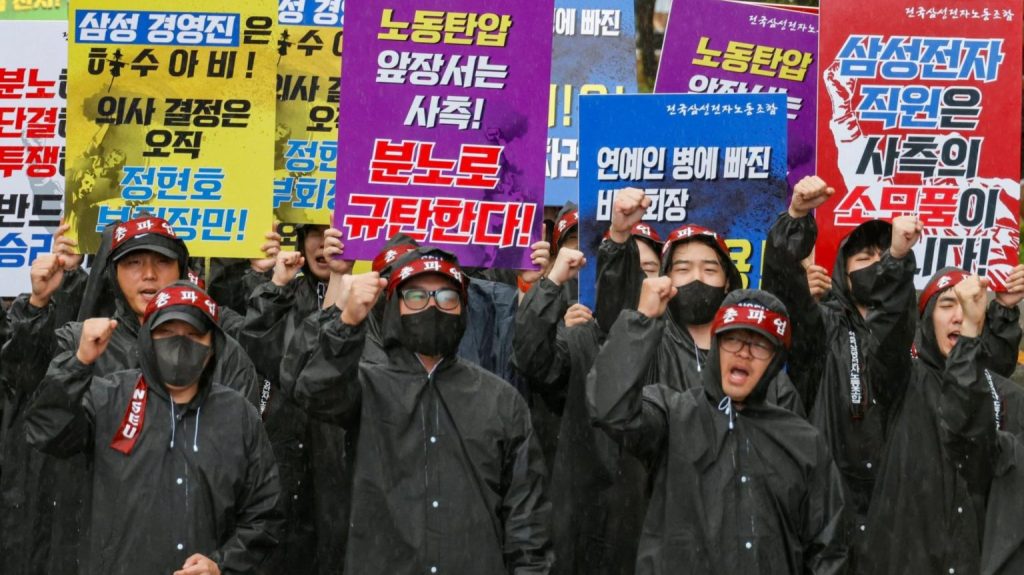
A union representing tens of thousands of workers at Samsung Electronics in South Korea announced on Wednesday that it would extend its three-day strike indefinitely in an effort to compel management to negotiate.
The strike, the largest in the tech giant’s history, intensifies pressure on Samsung’s management. Last week, the company predicted a significant increase in its second-quarter operating profits.
“(We) declare a second indefinite general strike from July 10, after learning that the management has no willingness to talk,” the National Samsung Electronics Union stated.
Over 5,000 union members initiated a three-day strike on Monday as part of a prolonged dispute over pay and benefits. This follows a one-day walkout in June, marking the first collective action at Samsung, a company that went decades without unionization.
The union, with over 30,000 members, represents more than a fifth of Samsung’s total workforce. Despite the strike, Samsung assured AFP on Wednesday that production would remain unaffected. “Samsung Electronics will ensure no disruptions occur in the production lines,” a company spokesperson said, emphasizing the company’s commitment to negotiating in good faith.
However, the union disputed this claim, stating that it had confirmed “clear disruption in production.” It warned that prolonged industrial action would increase pressure on management. “Eventually, they will kneel and come to the negotiation table. We are confident of victory,” the union asserted, calling for more workers to join the strike.
Limited Impact on Production
Industry experts suggest the strike may not significantly impact production due to the high level of automation in semiconductor factories. Avril Wu, an analyst at TrendForce, noted, “Even if the strike is extended, the current assessment is that there will still be no significant impact.”
The union’s demands, detailed on Wednesday, include a 5.6 percent pay raise for all members, transparent performance-based bonuses, compensation for financial losses due to the strike, and a guaranteed day off on the union’s founding day.
Neil Shah, research vice president at Counterpoint Research, said the impact on production would depend on factors such as the strike’s duration and the company’s recoup strategies. He emphasized the importance of management’s preparedness in handling the strike.
Historical Context
Samsung Electronics, the world’s largest memory chipmaker, managed to avoid unionization for nearly 50 years, often using aggressive tactics. Company founder Lee Byung-chul was staunchly opposed to unions, reportedly saying he would never allow them “until I have dirt over my eyes.”
The first effective labor union at Samsung Electronics was formed in 2019. Subsequently, in 2020, Lee Jae-yong, the founder’s grandson and current chairman, declared an end to the firm’s no-union policy, acknowledging that Samsung’s labor policies had failed to meet contemporary demands.
Samsung Electronics is a flagship subsidiary of Samsung Group, the largest of South Korea’s family-controlled conglomerates. The company recently predicted a more than 15-fold increase in its year-on-year second-quarter operating profits, driven by growing demand for generative AI.








